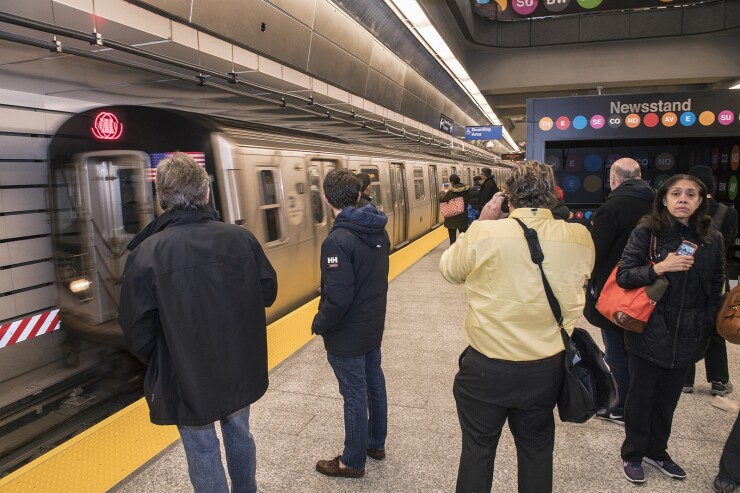New York state budget boost helped MTA net Moody’s upgrade
3 min read

The New York state budget deal included nearly $30 billion for the Metropolitan Transportation Authority’s 2025-2029 capital plan.
The budget had one other delayed benefit for the transit agency: a rating upgrade from Moody’s Ratings.
The continued state and city support for the MTA’s capital projects was the primary driver for Moody’s to raise the agency’s rating to A2 from A3 June 13, according to senior credit officer Baye Larsen.
The state’s increase of the payroll mobility tax, Larsen said, “provides substantial capital support for the MTA, and means that they’ll be able to make major investments in their 2025 to 29 capital program without having any additional fixed cost pressures on their operating budget.”
The upgrade applies to the MTA’s $17.1 of outstanding transportation revenue bonds. Moody’s simultaneously revised the outlook to stable at the new higher rating from positive.
The rating, according to the report, also reflects the MTA’s importance to New York’s “vast and economically robust market” and the agency’s “strong budget and financial management.”
The
The
The MTA will have to ramp up its borrowing in the coming years; it’s also planning to issue bonds backed by
But the state’s willingness to allocate varied streams of revenue to the MTA will allow it to borrow without straining its leverage metrics, Larsen said, as the MTA keeps its dedicated tax revenue in accounts separate from its operating budget.
The agency is facing pressures from federal policy, Larsen said. The Department of Transportation has attempted to
“We don’t have a position on the probability of the court outcome. What we do incorporate into our rating analysis is MTA’s continued flexibility to manage its capital program,” Larsen said. “To shift spending, reallocate resources and postpone or slow down projects, if necessary, if they find themselves in a situation where there is a funding gap.”
The MTA’s other federal policy risk is from its surface transportation grants, which are up for renewal in September 2026, Larsen said. The Trump administration and the GOP-run Congress may decide to alter or cut that program.
Policies like tariffs and limits on immigration are projected to increase the cost of construction, Larsen said, which could strain the MTA’s capital programs. However, the MTA has been conservative in its cost estimates for capital projects, she said, and can pare down its plans if necessary.
The MTA’s transportation revenue bonds are rated
The MTA has







